Southern California Gas Co. (SoCalGas) today announced that market prices for natural gas have dropped for the second month in a row, resulting in an 83% decrease in March’s procurement rate for SoCalGas core customers (residential and small businesses), when compared to January.
SoCalGas estimates that average residential bills will drop from $300 for January usage to an estimated $100 for March usage.
“We’re pleased that we’re seeing what appears to be a trend to natural gas prices that are more in line with last year,” said SoCalGas Senior Vice President and Chief Customer Officer Gillian Wright. “Still, with the unusually cold and wet weather, we encourage customers to continue to conserve energy and take advantage of our cost-savings programs, which include recently improved direct financial relief for eligible customers.”
SoCalGas does not set the price for natural gas. Instead, natural gas prices are determined by national and regional markets. SoCalGas buys natural gas in those markets on behalf of residential and small business customers, and the cost of buying that gas is billed to those customers with no markup.
Why Were Prices So High?
According to the US Energy Information Administration (EIA), a number of factors contributed to higher natural gas commodity prices that customers have recently experienced:
- Widespread, below-normal temperatures on much of the West Coast, including Washington and Oregon;
- High natural gas demand for heating by customers in areas with below normal temperatures;
- Reduced natural gas supplies to the West Coast from Canada;
- Reduced interstate pipeline capacity to the West Coast because of pipeline maintenance activities in West Texas; and
- Low natural gas storage levels on the West Coast.
According to the EIA, the U.S. set a natural gas consumption daily record on Dec. 23, 2022, further exacerbating supply and demand woes.
SoCalGas Expands Financial Relief Programs
On Monday, SoCalGas announced that it was committing $10 million to provide additional relief for low-income families, seniors and small restaurant owners hit hardest by high regional natural gas prices.
Of the $10 million, SoCalGas has committed $5 million in shareholder funding to the Gas Assistance Fund, a program administered by the United Way that provides income-qualified customers with one-time grants to help pay their natural gas bills. The contribution is the largest in the fund's 40-year history and will help the United Way expand access to the program to thousands of additional Southern Californians this winter.
The company is also contributing $4 million from our donor advised fund to relaunch our popular Fueling Our Communities program, a collaboration with local food banks and nonprofits that has provided free meals and groceries to thousands of Californians facing food insecurity since 2020.
Another $1 million in aid from SoCalGas’ donor advised fund will go to small restaurant owners through the Restaurants Care Resilience Fund, a fund that was started in 2021 to help small restaurants with improvements, upgrades, employee retention and to manage debt, losses and rising costs.
More Tools Available
SoCalGas continues to encourage customers to take advantage of other programs and services that can help manage usage and save costs.
Eligible customers may sign up for a Level Pay Plan (LPP), for example, which averages their annual natural gas use and costs over 12 months. There are also financial assistance programs for eligible customers who are experiencing hardships.
SoCalGas' free Ways to Save tool may also help customers with energy savings options through a personalized savings plan that offers a household energy analysis, customized energy-efficiency recommendations, bill comparisons, and energy usage comparisons that could help save on natural gas bills. Customers can also sign up for weekly Bill Tracker Alerts to monitor natural gas consumption, take steps to reduce usage, and avoid bill surprises.
Customers can visit socalgas.com/ManageHigherBills for more information on the factors that lead to higher bills and ways we can help.













